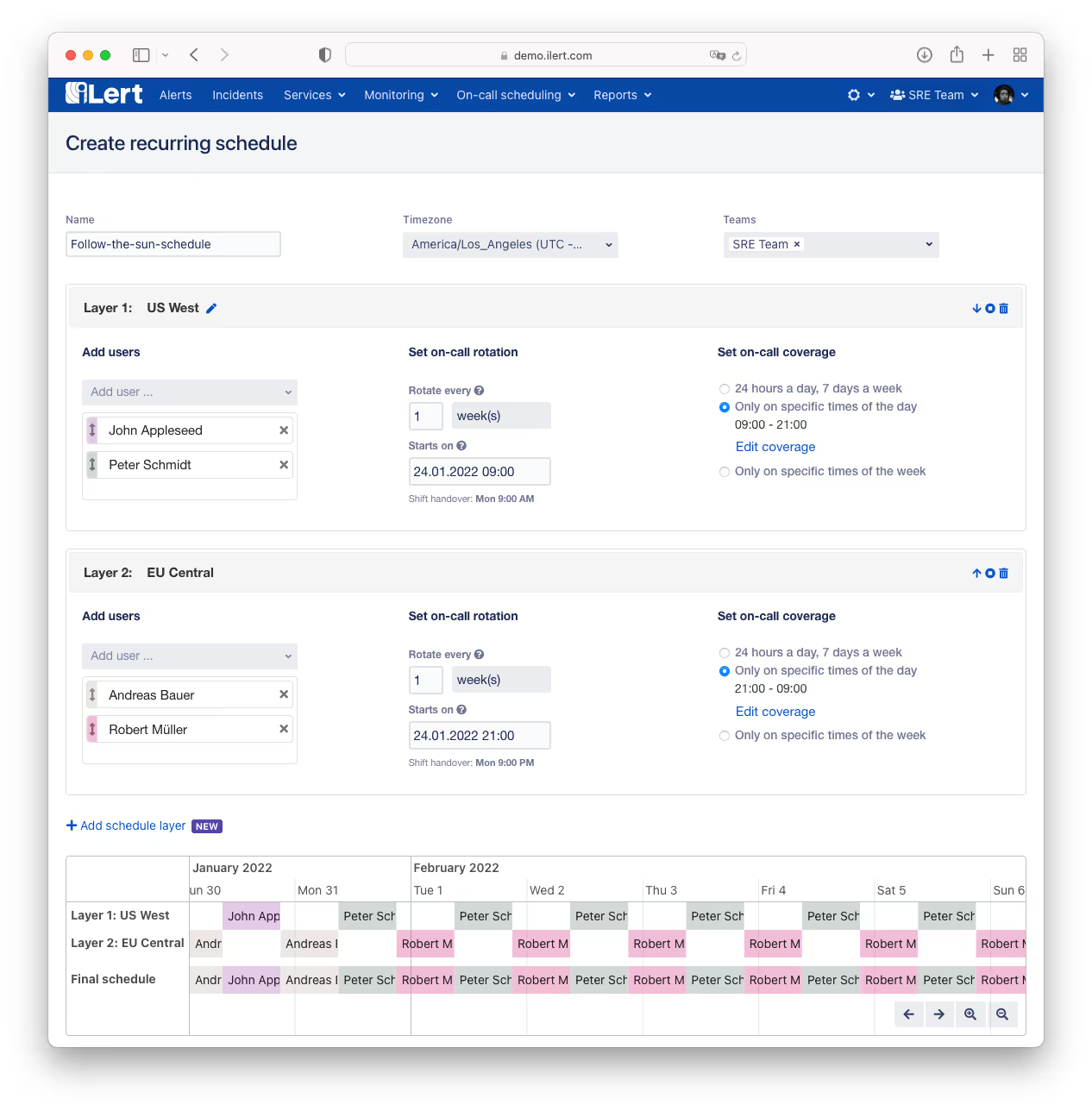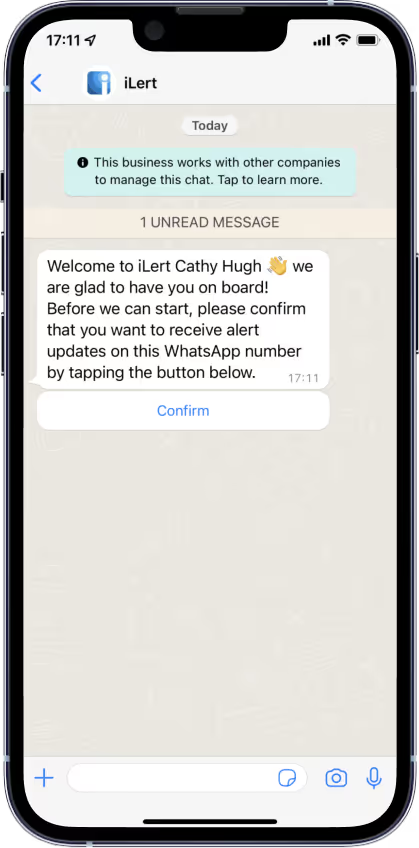New Features: Incident Comms, ilert Developer Platform, Complex Schedules, WhatsApp Notifications, New Integrations
This post highlights some of the features and improvements that we have released in the last 6 months.
Incident communication: effectively communicate incidents to your users
Almost two years ago, we introduced our Stakeholder Engagement feature that allows you to keep stakeholders in the loop during critical incidents. We have learned a lot in the meantime and are introducing a new way to communicate incidents to stakeholders and external users: Incident Comms. Our Incident Comms product is a suite of capabilities to effectively communicate incidents to stakeholders and external users. This change introduces a few new concepts in ilert that are outlined below.
Incidents
Incidents in ilert are specifically designed for the purpose of communicating with your users, as opposed to e.g. alerting on-call teams.
An incident has one or more affected services and will be
- posted an all status pages that contain at least one of the affected services
- and will be communicated to all subscribers of either the status page or the service
- and additionally inform subscribers that were manually added to the incident

You can also use incident templates to use as a starting point when manually creating incidents or to automatically create incident using automation rules. Refer to this article in our documentation to learn more about incidents.
Services
Services model business capabilities to which users rely on and can subscribe to to receive incident notifications.

A service has a state (e.g. operational or degraded) and a service uptime. When an incident is created, one or more services can be marked as affected. You can also automatically set the status of a service and create incidents using automation rules that are triggered by your alert sources. To learn more about services, refer to this article from our documentation.
Status pages
Status pages in ilert are built for operations teams and are connected with your infrastructure through alert sources and services from ilert. ilert offers private and public status pages that you can host on your domain (e.g. status.your-domain.com). Status pages will be available in a few weeks. Stay tuned to learn more.
Support for complex schedules with schedule layers
Ever wanted to create follow-the-sun schedules in ilert? Or schedules with different weekday and weekend shifts? You can now create complex recurring schedules in ilert using schedule layers.
In the example below, we have created a follow-the-sun-schedule across two sites, US West and EU Central.

A follow-the-sun-schedule lets you have 24/7 coverage without putting the burden on one site and distributes on-call across multiple timezones.
To facilitate creation of backup schedules, ilert also allows you to compare your schedule with other schedules during creation.

Refer to our documentation to learn more about schedule layers and complex schedules. You will also find a few example scheduling scenarios.
ilert Developer Platform: create and share ilert apps
The ilert Developer Platform is a new and secure way to create apps on top of ilert's APIs.
The ilert Developer Platform lets you
- create apps that are limited to your ilert account or can be used by all ilert accounts
- create apps that don't require a backend and work entirely in the browser (and therefore, could be deployed on a CDN only).
It uses OAuth 2.0 to provide (limited) access to resource operations on behalf of the user that has granted the access without sharing the actual user's credentials. We will publish a detailed guide and example application soon on our engineering blog. In the meantime, you can find more information in our documentation.
Support for alerts via WhatsApp
We are adding support for messengers as a notification method in ilert, with WhatsApp being the first supported messenger.

As with all notification channels in ilert, you can acknowledge an alert within the same channel. Additionally, with WhatsApp, you will be able to attach images and links to an alert. Simply respond with a link or an image in WhatsApp after you receive an alert.
New integrations
- Oh Dear
- GitLab
- Humio
- FreshService
- AppSignal
- Lightstep
- IBM Cloud Functions
- Crowdstrike
- IXON Cloud
- Salesforce
- StatusHub
- AWS GuardDuty

















